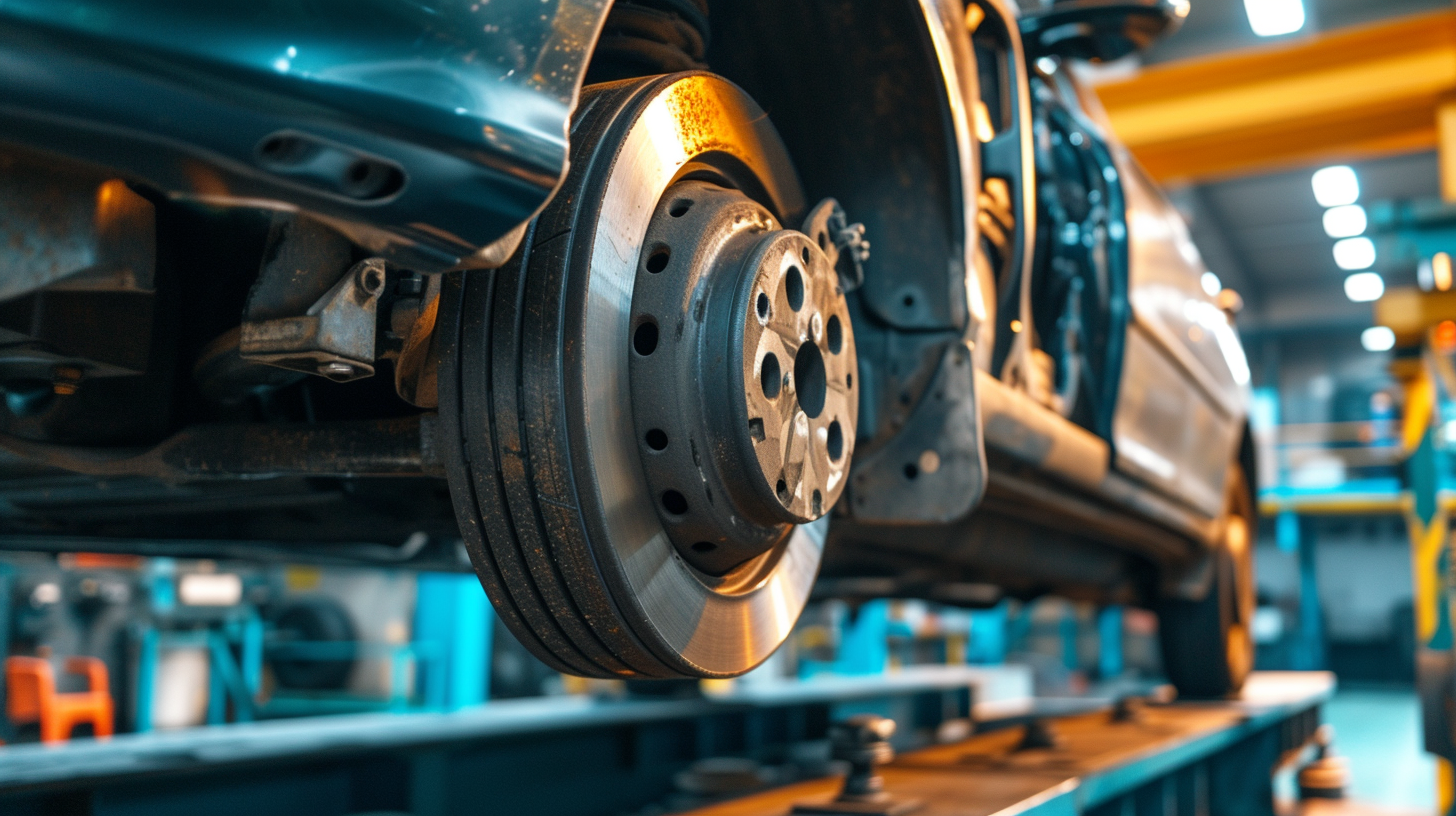Are your car brakes making strange noises? Don’t panic! In this article, we’ll show you how to diagnose and fix those annoying brake noises yourself. From squeaking brakes to grinding sounds, we’ve got you covered. With our step-by-step guide, you’ll be able to identify the problem and find the solution. Say goodbye to those pesky brake noises and get back on the road with confidence. Let’s get started!
Common Causes of Car Brake Noise
You might experience various common causes of car brake noise. One possible cause is worn brake pads. Over time, the brake pads can become thin and start to wear down, resulting in a grinding or squeaking noise when you apply the brakes. Another common cause is a loose or damaged brake caliper. If the caliper is not properly secured or if it becomes damaged, it can cause the brake pads to rub against the rotor, creating a rattling or scraping sound. Additionally, rust or debris buildup on the brake rotor can also cause noise. This can occur when moisture or dirt accumulates on the rotor surface, leading to a squealing or squeaking noise when the brakes are applied.
Step-by-Step Guide to Identifying Brake Noise
To accurately identify brake noise, start by carefully listening for any unusual sounds coming from your vehicle’s braking system. Pay close attention when you apply the brakes, especially if you hear any grinding, squealing, or clicking noises. These sounds can indicate various issues with your brakes, such as worn brake pads, loose brake components, or even a damaged rotor. Next, try to determine when the noise occurs. Is it only when you first start driving, or does it happen consistently? Does it get worse when you apply the brakes harder? Take note of these patterns as they can provide valuable information to help diagnose the problem. Lastly, inspect your brake components visually for any signs of damage or wear. Look for uneven wear on the brake pads, rust on the rotors, or any loose or broken parts. By carefully listening, observing, and noting the characteristics of the brake noise, you can better identify the underlying issue and take the necessary steps to fix it.
How to Fix Squeaking Brakes
Fixing squeaking brakes begins with identifying the source of the noise. When your brakes squeak, it could be due to several reasons. The most common cause is worn brake pads. If the brake pads are worn out, they can create a high-pitched squealing noise when they come into contact with the rotors. To fix this issue, you will need to replace the brake pads with new ones. Another possible cause of squeaking brakes is a lack of lubrication. The brake caliper slides and pins need to be properly lubricated to ensure smooth movement. Applying an appropriate lubricant can help eliminate the squeaking noise. In some cases, the brake rotors may also need to be resurfaced or replaced if they are worn or damaged. Remember, if you are unsure about fixing the squeaking brakes yourself, it is always best to consult a professional mechanic for assistance.
Solving Grinding Brake Noise Issues
When diagnosing grinding brake noise issues, start by inspecting the brake pads and rotors for signs of wear and damage, and then consider other possible causes such as loose brake hardware or a failing brake caliper. Grinding noises can often indicate that the brake pads have worn down to the metal, causing the metal backing of the pads to come into contact with the rotors. This can result in a loud, metallic grinding sound when you apply the brakes. In such cases, it is important to replace the brake pads and resurface or replace the rotors as necessary. Additionally, loose brake hardware, such as caliper mounting bolts or shims, can also cause grinding noises. Inspect the hardware and tighten or replace any components that are worn or damaged to eliminate the noise. If the grinding noise persists, it could be a sign of a failing brake caliper, which will need to be replaced to resolve the issue.
Preventing Future Brake Noise Problems
To avoid future brake noise problems, you should regularly inspect and maintain your brake system. Proper maintenance can help prevent issues such as squeaking, grinding, or vibrating brakes. Start by checking the brake pads for wear and tear. If they are less than a quarter inch thick, it’s time to replace them. Additionally, inspect the brake rotors for any signs of damage or warping. If you notice grooves or uneven wear, it’s best to replace them as well. Regularly clean your brake calipers to remove any debris or dirt that may cause noise. Lubricating the brake hardware with a high-temperature silicone lubricant can also help reduce noise. Finally, make sure to use quality brake components and follow the manufacturer’s recommendations for brake fluid flushes to maintain optimal brake performance and minimize noise.

Lucas is an experienced vehicle technician with hands-on knowledge of almost every car brand available. Throughout his career, Lucas has worked on a wide range of vehicles, including domestic and foreign models, sports cars, trucks, and SUVs.





